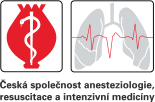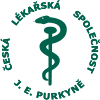Anest. intenziv. Med. 2019;30(6):265-270 | DOI: 10.36290/aim.2019.073
The year in review - neuroanaesthesia and neurointensive careReview Article
- Klinika anesteziologie, resuscitace a intenzivní medicíny, Fakultní nemocnice Hradec Králové, Lékařská fakulta v Hradci Králové, Univerzita Karlova
The development of surgical techniques requires the introduction of new anaesthetic approaches. In neuroanesthesia, the emphasis is placed on the so-called multimodal approach to conducting anesthesia. The use of Dexmedetomidine allows us to extend the indications for resection of tumours in the eloquent areas as well as to patients with expected difficult airway management, especially during reintubation in the last phase of surgery. Also, reduction in the incidence and severity of delirant conditions in the phase of awakening during surgery is possible by replacing general anesthesia with sedation using Dexmedetomidine. We comment on the results of the first prospective study on the safety of head elevation with regard to the incidence and severity of venous air embolism, and studies comparing general anesthesia vs. sedation in patients with ischaemic stroke (results of subgroup analysis of DEFUSE 3).
From the realm of neurointensive care, we present the results of a study examining the effect of tranexamic acid on the extent and clinical outcomes of patients with spontaneous intracerebral hemorrhage (CRASH-3 study), the effects of introduction of the so-called minimal invasive intervention in spontaneous intracerebral hemorrhage (MISTIE 3 study) and transfusion safety study in severe brain injury (TRAHT study). Last but not least, we have introduced new recommendations in the care of severe brain injuries in adults (SIBICC).
Keywords: anaesthesia; neurosurgery; intensive care; literature in medicine
Received: November 3, 2019; Accepted: November 10, 2019; Published: January 1, 2020 Show citation
References
- Bohringer C, Liu H. Is it time for an expanded role of dexmedetomidine in contemporary anesthesia practice? - A clinician's perspective. Transl Perioper & Pain Med. 2018;5:55-62.
 Go to original source...
Go to original source... - Státní ústav pro kontrolu léčiv. Dexdor. Databáze léků. 2019. Dostupné z: http://www.sukl.cz/modules/medication/detail.php?kod=0168651.
- Mitra S, Carlyle D, Kodomudi G, et al. New advances in acute postoperative pain management. Curr Pain Headache Rep. 2018,4;22:35.
 Go to original source...
Go to original source...  Go to PubMed...
Go to PubMed... - Liu Y, Liang F, Liu X, et al. Dexmedetomidine Reduces Perioperative Opioid Consumption and Postoperative Pain Intensity in Neurosurgery: A Meta-analysis. J Neurosurg Anesthesiol. 2018,30:146-155.
 Go to original source...
Go to original source...  Go to PubMed...
Go to PubMed... - Ren C, Xu H, Xu G, et al. Effect of intraoperative infusion of dexmedetomidine on postoperative recovery in patients undergoing endovascular interventional therapies: A prospective, randomized, controlled trial. Brain Behav. 2019,9:e01317.
 Go to original source...
Go to original source...  Go to PubMed...
Go to PubMed... - Türe H, Harput MV, Bekiroğlu N, et al. Effect of the degree of head elevation on the incidence and severity of venous air embolism in cranial neurosurgical procedures with patients in the semisitting position. J Neurosurg. 2018;128:1560-1569.
 Go to original source...
Go to original source...  Go to PubMed...
Go to PubMed... - Brinjikji W, Pasternak J, Murad MH, et al. Anesthesia-related outcomes for endovascular stroke revascularization: a systematic review and meta-analysis. Stroke. 2017;48:2784-2791.
 Go to original source...
Go to original source...  Go to PubMed...
Go to PubMed... - Löwhagen Hendén P, Rentzos A, Karlsson JE, et al. General anesthesia versus conscious sedation for endovascular treatment of acute ischemic stroke: the AnStroke Trial (Anesthesia During Stroke). Stroke. 2017;48:1601-1607.
 Go to original source...
Go to original source...  Go to PubMed...
Go to PubMed... - Simonsen CZ, Yoo AJ, Sørensen LH, et al. Effect of general anesthesia and conscious sedation during endovascular therapy on infarct growth and clinical outcomes in acute ischemic stroke: a randomized clinical trial. JAMA Neurol. 2018;75:470-477.
 Go to original source...
Go to original source...  Go to PubMed...
Go to PubMed... - Powers WJ, Rabinstein AA, Ackerson T, et al. Guidelines for the Early Management of Patients With Acute Ischemic Stroke: 2019 Update to the 2018 Guidelines for the Early Management of Acute Ischemic Stroke: A Guideline for Healthcare Professionals From the American Heart Association/American Stroke Association. Stroke. 2019 Oct 30:STR0000000000000211.
 Go to original source...
Go to original source...  Go to PubMed...
Go to PubMed... - Albers GW, Marks MP, Kemp S, et al. Thrombectomy for stroke at 6 to 16 hours with selection by perfusion imaging. N Engl J Med. 2018;378:708-718.
 Go to original source...
Go to original source...  Go to PubMed...
Go to PubMed... - Campbell D, Diprose WK, Deng C, Barber PA. General Anesthesia Versus Conscious Sedation in Endovascular Thrombectomy for Stroke: A Meta-Analysis of 4 Randomized Controlled Trials. J Neurosurg Anesthesiol. 2019 Sep 26. doi: 10.1097/ANA.0000000000000646.
 Go to original source...
Go to original source...  Go to PubMed...
Go to PubMed... - Powers CJ, Dornbos D, Mlynash M, et al. Thrombectomy with Conscious Sedation Compared with General Anesthesia: A DEFUSE 3 Analysis. AJNR Am J Neuroradiol. 2019;40:1001-1005.
 Go to original source...
Go to original source...  Go to PubMed...
Go to PubMed... - CRASH-2 trial collaborators, Shakur H, Roberts I, Bautista R, et al. Effects of tranexamic acid on death, vascular occlusive events, and blood transfusion in trauma patients with significant haemorrhage (CRASH-2): a randomised, placebo-controlled trial. Lancet. 2010;376:23-32.
 Go to original source...
Go to original source...  Go to PubMed...
Go to PubMed... - CRASH-2 collaborators, Roberts I, Shakur H, Afolabi A, et al. The importance of early treatment with tranexamic acid in bleeding trauma patients: an exploratory analysis of the CRASH-2 randomised controlled trial. Lancet. 2011;377:1096-1101.
 Go to original source...
Go to original source...  Go to PubMed...
Go to PubMed... - CRASH-2 Collaborators (Intracranial Bleeding Study). Effect of tranexamic acid in traumatic brain injury: a nested randomised, placebo controlled trial (CRASH-2 Intracranial Bleeding Study). BMJ. 2011;343:d3795.
 Go to original source...
Go to original source...  Go to PubMed...
Go to PubMed... - The CRASH-3 trial collaborators. Effects of tranexamic acid on death, disability, vascular occlusive events and other morbidities in patients with acute traumatic brain injury (CRASH-3): a randomised, placebo-controlled trial. The Lancet. 2019,October 14, doi: https://doi.org/10.1016/S0140-6736(19)32233-0.
 Go to original source...
Go to original source...  Go to PubMed...
Go to PubMed... - Sprigg N, Flaherty K, Appleton JP, et al. Tranexamic acid for hyperacute primary IntraCerebral Haemorrhage (TICH-2): an international randomised, placebo-controlled, phase 3 superiority trial for the TICH-2. Lancet. 2018; 391:2107-2115.
 Go to original source...
Go to original source...  Go to PubMed...
Go to PubMed... - Sarma AK, Ghoshal S, Craven SJ, Sarwal A. Intracerebral Hemorrhage: A Brief Evidence-Based Review of Common Etiologies, Mechanisms of Secondary Injury, and Medical and Surgical Management. J Neuroanaesthesiol Crit Care. 2019,6:119-130.
 Go to original source...
Go to original source... - Hanley DF, Thompson RE, Rosenblum M, et al. Efficacy and safety of minimally invasive surgery with thrombolysis in intracerebral haemorrhage evacuation (MISTIE III): a randomised, controlled, open-label, blinded endpoint phase 3 trial. Lancet. 2019 Mar 9;393:1021-1032. Erratum in: Lancet. 2019;393:1596.
 Go to original source...
Go to original source...  Go to PubMed...
Go to PubMed... - Salim A, Hadjizacharia P, DuBose J, et al. Role of anemia in traumatic brain injury. J Am Coll Surg. 2008, 207:398-406.
 Go to original source...
Go to original source...  Go to PubMed...
Go to PubMed... - Leal-Noval SR, Rincón-Ferrari MD, Múñoz-Gómez M. Red blood cell transfusion may be more detrimental than anemia for the clinical outcome of patients with severe traumatic brain injury. Crit Care. 2019;23:189.
 Go to original source...
Go to original source...  Go to PubMed...
Go to PubMed... - Leal-Noval SR, Arellano-Orden V, Muñoz-Gómez M, et al. Red blood cell transfusion guided by near infrared spectroscopy in neurocritically ill patients with moderate or severe anemia: A randomized, controlled trial. J Neurotrauma. 2017;34:2553-2559.
 Go to original source...
Go to original source...  Go to PubMed...
Go to PubMed... - Leal-Noval SR, Muñoz-Serrano Á, Arellano-Orden V, et al. Effects of red blood cell transfusion on long-term disability of patients with traumatic brain injury. Neurocrit Care. 2016;24:371-380.
 Go to original source...
Go to original source...  Go to PubMed...
Go to PubMed... - Gobatto ALN, Link MA, Solla DJ, et al. Transfusion requirements after head trauma: a randomized feasibility controlled trial. Crit Care. 2019;23:89.
 Go to original source...
Go to original source...  Go to PubMed...
Go to PubMed... - Hawryluk GWJ, Aguilera S, Buki A, et al. A management algorithm for patients with intracranial pressure monitoring: the Seattle International Severe Traumatic Brain Injury Consensus Conference (SIBICC). Intensive Care Med. 2019 Oct 28. doi: 10.1007/s00134-019-05805-9.
 Go to original source...
Go to original source...  Go to PubMed...
Go to PubMed...





